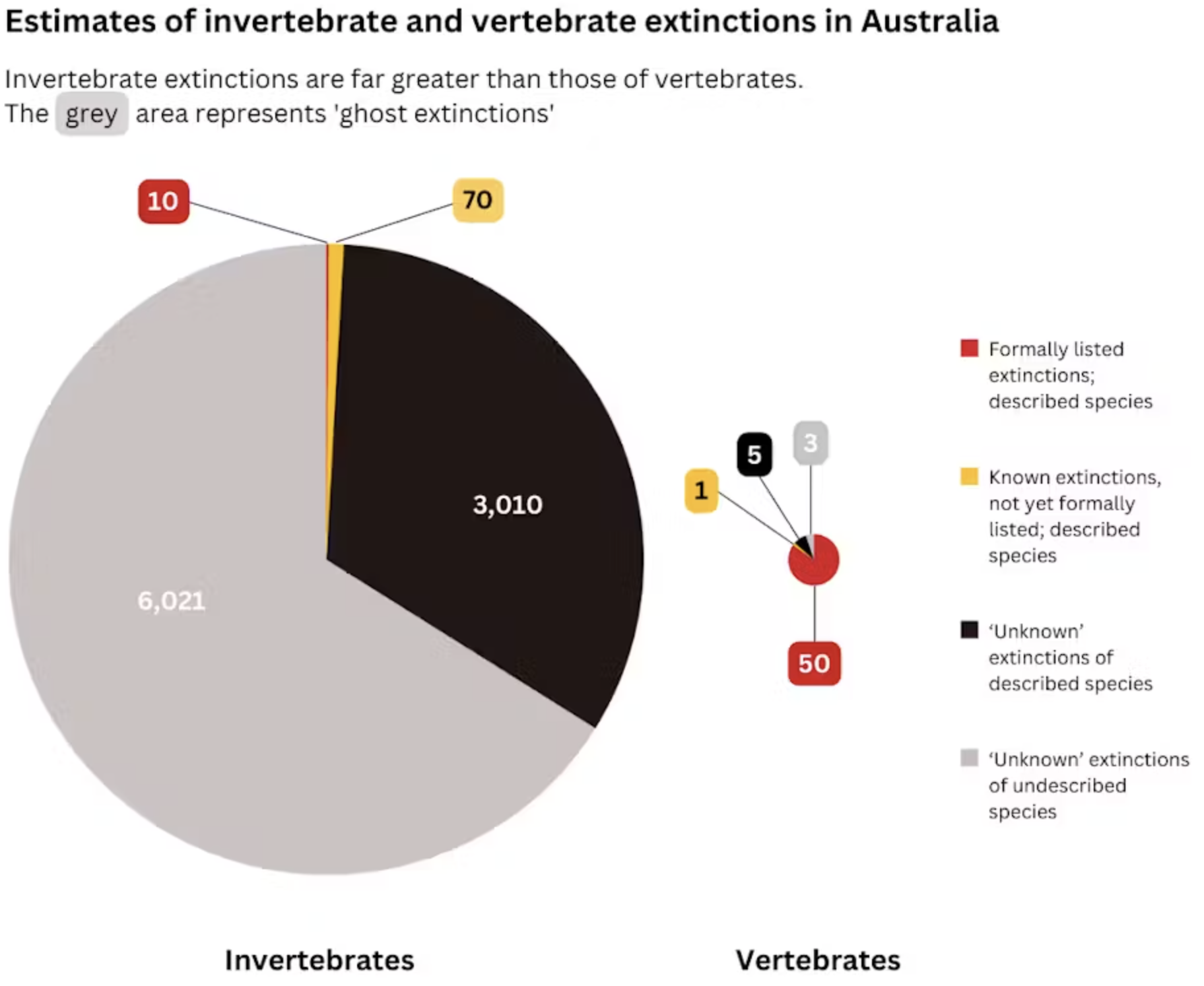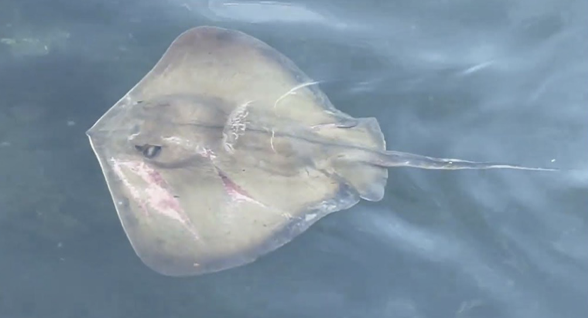Environment: Australian Governments sacrifice the environment for dollars and votes
April 27, 2025
The sham of biodiversity offsets for coal mining. Will the climate benefit if Australia hosts the COP in 2026? Albanese further weakens Australia’s outdated environmental protection laws.
Biodiversity offsets sham
In February I took the day-long train journey to Narrabri, 500 km north-west of Sydney, for the Biodiversity Offsets. Problems and Consequences conference.
Narrabri is close to the Leard State Forest’s critically endangered White box-gum woodland. It is also close to Whitehaven’s Maules Creek, Gunnedah and Tarrawonga coal mines and Idemitsu’s Boggabri coal mine, all open-cut. Ten years ago, local Indigenous people, farmers and environmental activists campaigned for several years to oppose the establishment of the mines. Since mining began, members of the local community have monitored events and engaged with the mining companies and state government over multiple extensions and variations to the original approvals. They have also monitored and reported failures by the miners to adhere to the approval conditions for both the mining and the required biodiversity offsets. Notable here has been the reluctance by the state government to act when failures to abide by approval conditions were reported to them.
The conference started on Friday evening with a showing of Black Hole, a feature documentary about the campaign to protect the Leard State Forest from the proposed mines. Shot on location during the campaign, the film tells the story of one of Australia’s longest blockades, principally from the viewpoint of the protesters as few others were prepared to be interviewed. It’s an excellent film that I thoroughly encourage you to see if you get the opportunity. The commitment, enthusiasm and stoicism of the protesters is uplifting, but the actions of the mining companies and the NSW Government, especially the police at times, are thoroughly disappointing. Perhaps most shocking for me were the intimidatory activities of the police whose job, I thought, is to supervise adherence to the law, not intimidate people who are doing nothing illegal at the time.
I won’t describe the contents of the conference on the Saturday – you can get a good idea from the conference website on the link above. Suffice it to say that it was an extremely interesting and informative day – among other things, I hadn’t previously fully appreciated the scale of water usage by the mines. Sadly, the stories told by speakers dispelled any remaining confidence one might have in the commitment of the mining companies or the state government to environmental protection. They did, however, reinforce my already enormous respect for the work of small groups of committed, knowledgeable local champions of the environment. And I should emphasise that many speakers stressed the importance of consulting and looking after employees and communities affected when mining or logging stops.
The history of mining in the Narrabri area is a graphic demonstration of the failings of biodiversity offsets. Failings that are absolutely inevitable because it is a fundamentally flawed concept that is designed to permit destruction of the environment rather than protect biodiversity. The vast majority of approved biodiversity offset schemes are so poorly designed, implemented, managed, monitored, enforced and evaluated that their integrity is non-existent. As I said on the day in response to a discussion about ways to improve biodiversity offset schemes in Australia, “Why would you even try? It’s like polishing a turd.”
Invertebrate extinctions
A few weeks ago I highlighted the lack of attention being paid to the extinction of species we refer to as parasites.
Unfortunately, invertebrates, as a whole, suffer a similar public image problem. It is estimated that more than 95% of the world’s and Australia’s animal species (at least 300,000 in Australia) are invertebrates. I say “estimated” because two-thirds are currently unknown.
The official tally is that 100 Australian animal and plant species have become extinct since 1788 – only one of which is an invertebrate. But it’s been estimated that more than 9000 invertebrate species have actually perished in Australia over that period.

Many humans might cheer and holler if mosquitoes and cockroaches disappeared (I’d be happy if they didn’t come into my home) but creepy-crawlies, bugs, whatever you call them, are essential elements of almost all ecosystems. Without them, things will fall apart, not just for the invertebrates and their closest little buddies, but also for humans. Invertebrates play a vital role in maintaining our soil, water, air and food supplies. So, it’s not good news that one to three invertebrate species are currently being lost each week. The usual causes are loss of habitat to urban development, farming and changed water systems, invasive species, insecticides and pesticides for domestic and agricultural uses, etc., etc.
To protect biodiversity, we mustn’t limit our attention to the warm and cuddly, the beautiful, the large, the quirky, the species on which we most obviously depend. We must include those that irritate, that are forgotten or even currently unknown, and that have traditionally been regarded with distaste.
Could Australia be trusted with the 2026 COP?
Anthony Albanese has announced that if Australia wins the bid to host COP 31 in 2026, the event will be held in Adelaide. So keen is the current government to host the COP that it established a sizeable unit to develop and promote our bid a couple of years ago. Türkiye is the only other bidder and they show no signs of withdrawing.
Peter Dutton has declared that running a COP will be a complete waste of money and should he become prime minister, he will withdraw Australia’s bid – with the win-win bonus for him that it will rapidly produce a few public service redundancies.
The main arguments I have seen being advanced for Australia holding the COP are that it will be associated with a “tourist” boom; that it will provide a showcase for Australia’s renewable energy credentials with flow-on trade and economic benefits; and that it will strengthen our links with Pacific Island nations and discourage them from establishing further links with China. All well and good, but I was under the naïve impression that the primary function of COP meetings was to accelerate global progress on reducing greenhouse gas emissions and halting global warming.
Unlike some of my environmental colleagues, I am not at all enthusiastic about Australia hosting a COP. I am concerned that it will be little more than a flashy PR exercise for Australia internationally and (should it be Labor) the government domestically.
First, it is worth remembering that Australia is a significant producer and exporter of fossil fuels, just like Azerbaijan (host of COP 29) and the United Arab Emirates (host of COP 28). Recent COP meetings have been more notable for the number of fossil fuel-related national delegates and industry representatives in attendance and making their presence felt than for any great advances towards combating climate change.
True, it has been suggested that hosting the COP will provide a stimulus to Australia’s climate action. However, I find it difficult to believe that it will result in any change to the policies of either the ALP or the Coalition, both of which are committed to keep digging, pumping and exporting coal and gas as long as possible – that’s bipartisan policy in practice. And, as I keep saying, it doesn’t matter how much renewable energy the world produces, what matters is how much fossil fuel we burn.
Before the Australian environmental movement gets on board with supporting Australia’s bid and possibly later participating in the COP, a Labor Government should be required to make some iron-clad promises about coal and gas: e.g., no new, expanded or extended extraction approvals, a rapid reduction and elimination of all fossil fuel subsidies, rapid phasing out of our ageing, inefficient coal-fired power stations, and development of just transition plans for affected regions and communities.
Second, if I were a leader of a Pacific Island nation, I’d be very sceptical of any promises made to induce me to sign on the dotted line of Australia’s COP bid. Australian Governments like to provide Pacific nations with modest amounts of cash, technology and expertise to facilitate disaster preparedness and climate adaptation so that they are somewhat better prepared for the immediate consequences of climate change. But our leaders resist doing much to stop Australia causing climate change and its existential threat to the islands and their inhabitants. I hope Pacific Islanders have hired some hardball negotiators to ensure that Australia pays a very high price for their support and co-operation.
A decision on the location of next year’s COP is expected in June.
Finally, it’s worth remembering that South Australia enacted in 2023, with no opportunity for proper consideration of the legislation, some of Australia’s most restrictive and punitive anti-protest laws. Maybe that influenced the choice of Adelaide.
EPBC Act – what just happened?
The environmental movement and many members of the public were horrified by the government and Opposition working together in the dying days of this term of parliament to amend the Environment Protection and Biodiversity Conservation Act to reduce environmental protections. The haste with which the amendment was passed was prompted by a preparedness (eagerness even) to sacrifice some of Tasmania’s natural environment and allow a threatened species to go extinct simply to protect Tasmania’s salmon farming industry and, of course, some local jobs and votes. The provisions in the amendment will, though, be applicable nationwide.
This disgraceful act followed the decision by Albanese late in 2024 to renege on the ALP’s promises before and after the 2022 election to strengthen the EPBC Act in line with the recommendations of Graeme Samuel’s independent review. Just to remind you, in 2020 Samuel wrote, “The EPBC Act is outdated and requires fundamental reform. It does not enable the Commonwealth to effectively fulfil its environmental management responsibilities. The Act is a barrier to holistic environmental management which is essential for success.” The Labor Government has not only failed to enact the fundamental reform required, it has weakened the EPBC Act. Well done, comrades.
The Environmental Defenders Office has prepared a less outraged, brief but much more informative analysis of both the recent amendment and the overall state of play with the review of the EPBC Act. Worth reading.
If all that has left you feeling anxious …
… chill out by watching this five-minute video that I shot on my phone over Easter. The body and tail of the stingray were about two metres long. For those not familiar with Sydney, Rushcutters Bay is well into Sydney Harbour and contains a sizeable marina which may explain the scars.



